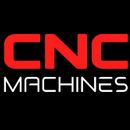Accurately Quoting Jobs for a CNC Machine Shop: Best Practices and AI Integration

Accurately Quoting Jobs for a CNC Machine Shop: Best Practices and AI Integration
Quoting jobs accurately in a CNC machine shop is crucial for maintaining profitability, customer satisfaction, and long-term business relationships. It involves careful resource allocation, scheduling, and ensuring on-time delivery. This article explores the best practices for quoting jobs accurately and how AI can streamline the quoting process to support long-term customer expectations.
Best Practices for Accurate Quoting
1. Detailed Job Analysis
- Understand Specifications: Gather detailed specifications from the customer, including material type, dimensions, tolerances, and surface finish requirements.
- Complexity Assessment: Evaluate the complexity of the part, which influences machining time and tooling requirements.
- Material Costs: Calculate the cost of raw materials accurately, considering any waste or scrap that may be generated during machining.
2. Resource Allocation
- Machine Availability: Assess the availability of machines required for the job. Consider machine capacity and the need for specific fixtures or tooling.
- Labor Costs: Estimate the labor costs based on the required skill level and the time needed for setup, operation, and inspection.
- Tooling and Consumables: Account for the costs of tooling, cutting fluids, and other consumables. Include wear and tear on tools, which may need replacement or reconditioning.
3. Scheduling and Planning
- Lead Time: Determine realistic lead times based on current workload and machine availability. Factor in potential delays due to maintenance or unforeseen issues.
- Production Planning: Develop a detailed production plan that outlines each step of the manufacturing process, from material preparation to final inspection.
- Buffer Time: Include buffer time to accommodate any unexpected challenges or rework that may be needed.
4. On-Time Delivery
- Monitoring Progress: Use project management tools to monitor the progress of each job. Ensure that milestones are met and any delays are addressed promptly.
- Communication: Maintain open communication with the customer throughout the production process. Provide regular updates and address any changes or concerns immediately.
- Quality Control: Implement stringent quality control measures to ensure that parts meet customer specifications and reduce the risk of rework.
How AI Can Streamline Quoting
1. Automated Quoting Systems
- Instant Quotes: AI-powered quoting scncystems can generate instant quotes based on uploaded CAD files and job specifications. This speeds up the quoting process and reduces the risk of human error.
- Data Analysis: AI can analyze historical data to provide more accurate cost estimates and identify patterns that affect pricing, such as material fluctuations or machining complexity.
2. Enhanced Resource Allocation
- Predictive Maintenance: AI can predict when machines will require maintenance, allowing for better scheduling and minimizing downtime.
- Optimal Resource Use: AI algorithms can optimize the use of machines and labor, ensuring that resources are allocated efficiently and jobs are completed on time.
3. Improved Scheduling
- Dynamic Scheduling: AI can dynamically adjust schedules based on real-time data, ensuring that any changes in production are reflected immediately.
- Load Balancing: AI can balance the workload across multiple machines and shifts, improving overall productivity and reducing bottlenecks.
4. Enhanced Customer Communication
- Automated Updates: AI can automatically send updates to customers regarding the status of their orders, improving transparency and customer satisfaction.
- Predictive Analytics: AI can use predictive analytics to foresee potential delays and communicate them to customers proactively, along with revised delivery dates.
Case Study: AI Integration in CNC Job Quoting
Company Profile: Precision Parts Manufacturing
Challenge
The company faced challenges in providing accurate quotes quickly and managing resource allocation efficiently to meet delivery deadlines.
Solution
Precision Parts Manufacturing implemented an AI-powered quoting and scheduling system.
Implementation
- AI Quoting System: Integrated an AI quoting system that generates quotes based on CAD files and detailed job specifications.
- Predictive Maintenance: Utilized AI for predictive maintenance, reducing unexpected machine downtime.
- Dynamic Scheduling: Adopted AI-driven dynamic scheduling to optimize resource allocation and balance workloads.
Results
- Quoting Accuracy: The accuracy of job quotes improved by 30%, reducing the instances of underquoting and overquoting.
- Lead Time Reduction: Lead times were reduced by 25% due to optimized scheduling and efficient resource allocation.
- Customer Satisfaction: Customer satisfaction increased due to timely delivery and improved communication throughout the production process.
Conclusion
Accurately quoting jobs in a CNC machine shop is essential for maintaining profitability and customer satisfaction. By following best practices in job analysis, resource allocation, scheduling, and on-time delivery, shops can ensure accurate quotes and reliable service. The integration of AI technologies further enhances these processes, providing instant quotes, optimizing resource use, and improving communication with customers. As AI continues to evolve, its role in streamlining the quoting process and supporting long-term customer expectations will only grow.
References
- "Best Practices for CNC Job Quoting," Modern Machine Shop.
- "The Role of AI in Manufacturing," McKinsey & Company.
- "Optimizing CNC Operations with AI," Manufacturing Tomorrow.
- "Precision Parts Manufacturing Case Study," AI in Industry Journal.


